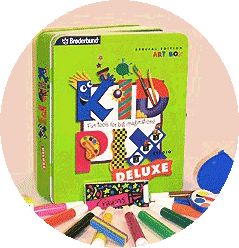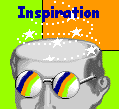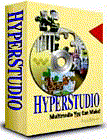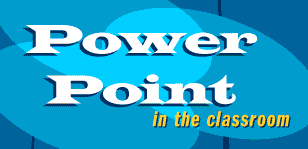|
|
|
|
|
|
Welcome to
Mayberry School's
Literacy Information Resource

Created by Julie
Coiro
January, 2000; Updated March, 2004
These pages were created to support your study of effective
literacy
instruction for early readers. You can access information that
may
help foster discussion during your study group meetings, lesson ideas
that
you can incorporate into your reading instruction, or technology
resources
that may spark your interest for further professional development. Let
us know if you have other ideas to add to these pages as your study
of literacy continues, so that this resource can provide a common place
from which to exchange successful lessons and inspire new ideas.
|
|
|
|
Reading Research Resources
This list was compiled to provide you with further background knowledge
about current research findings from some popular literacy
organizations.
You are encouraged to visit these web sites, jot down questions or
application
ideas you may have and bring these forward at one your study group
meetings.
CIERA's School Change Web Site
This is your connection to CIERA Project you are involved with at your school. Visit for monthly updates and additions to their online modules on essential components of successful early intervention models. There are additional sites available to you as a current participant of their school project.EduPlace: Issues in Literacy Development
This document summarizes the best available research and professional expertise to help teachers provide high-quality literacy instruction for students from kindergarten through Grade 8. The information has been organized around topics that are important to literacy development. Authors: John Pikulski and J. David Cooper.Learning to Read: Resources for Language Arts and Reading Research
Includes lots of research on individual components of "Balanced Literacy", examples of Interactive Lessons, links to related professional organizations and book publishers.Reading Online
A journal of K-12 practice and research, published by the International Reading Association. Many, many articles about reading and research.NCREL Balanced Reading Instruction
Summarizes review of the literature and provides links to many resources in the text and in the bibliography.Creating Support for Effective Literacy Education
Scroll to the bottom of this page to access links to many excellent fact sheets that accompany this book by Constance Weaver, Lorraine Gillmeister-Krause, & Grace Vento-Zogby.Reading Success Network
George Washington University's link to their two newsletters, great reading research sites and a few reading research articles.Reading Assessment Evaluation Diagnosis
A sampling of different ways to evaluate early reading successResearch Questions Teachers Ask
A report from the National Reading Research Center Research Consortium. This article may prompt a bit of discussion among teachers, if nothing else.The Great Debate Revisited
A short editorial response that describes this writer's perspectiveLearning to Read and Whole Language Idealogy
An overview piece (not sure when it was written) in which the author addresses the importance of phonics instruction.Reading Strand Components of North Carolina Language Arts Curriculum
Similar to the findings of Connecticut's Early Reading Success Panel Report, this is North Carolina's listing of the components important to literacy instruction.NCREL: What does research say about reading?
Describes major findings that focus on the cognitive aspects of reading comprehensionReading Framework for the National Assessment of Educational Pro
Reports the structure of the reading achievement tests given to students in the United States at the national and state level. Chapters 2 and 3 give good examples of how to assess reading comprehension, metacognition, and the use of reading strategies.Early Literacy Ideas from Bank Street College
Describes various early literacy development and reading strategies that can be fostered at home and at school.ReadbyGrade3.com Reading Research Links
Links to reports from the National Reading Panel, Reading Coherence Initiative, Phonemic Awareness Research, and organizations for students with reading disabilitiesCognitive Foundations of Learning to Read: A Framework
Southwest Educational Development Library offers this summary of cognitive elements of reading, a reading assessment database and lots of supporting research evidence.
Instructional Reading Resources
ReadingLady
An online resource for educators seeking to interact with other educators as they expand their understanding of literacy teaching. Access and download many, many resources for guided reading, particularly within the context of Pat Cunningham's Four Blocks Approach to Literacy. Read lots of different management tips about reading or learn more about Six Trait Writing, Author Studies, Comprehension Strategies from Mosaic of Thought, Poetry, and Reader's Theatre. Join several different electronic discussion groups to interact with other teachers just like yourself.Children's Literature Web Guide
A fantastic compilation of Internet resources related to books for children and young adults.Cheryl Sigmon's 4-Block's Literacy Model
Archive of 60+ articles updated twice a month at Sigmon's online column. Cheryl Sigmon is one of the creators of the Four Blocks approach to literacy, along with Pat Cunningham and Dorothy Hall.Julie Coiro's Literacy Resources on Suite101
Archive of 30+ articles updated monthly at Coiro's online column. Julie Coiro is a literacy and technology specialist. She works privately in Connecticut as an educational consultant.
Guided Reading
Literature Circles
- What is Guided Reading?
excerpts from the MCPS Early Literacy Guide- Guided Reading within the 4 Blocks Model
Good links that describe many examples of guided reading in actual classrooms- Guided Reading Case Study by Janet Seymour
These case studies set Guided Reading within the context of a rich English program.- Leveling Books
- Level Estimator at ReadWrite Website...this online set of leveled texts enables you to estimate a child's reading level in minutes
- Portland Public Schools Leveled Book Lists (trade books)
- Reading Recovery List of Leveled Books for Teachers in Grades K-3
- LeveledBooks.com: search the most frequently taught trade paperbacks for Reading Recovery, Title I, and all K-3 reading teachers
- This excerpt from Guiding Literacy Learners, by Susan Hill outlines how to select texts with increasing levels of difficulty
- Literature Circles Resource Center
Lesson examples of primary students and background information for teachers- Literature Circles SESD Teacher Resources
- ProTeacher Literature Circles Hotlist of links
This next section is designed to inspire new ways of thinking about how technology can be used as a tool for enhancing your current literacy curriculum. My hope is that you'll explore these links and choose one of the tools that you'd like to being using with your students. Future training sessions at your school can be designed to answer your questions about these particular tools and help you integrate these exciting strategies into your literacy lessons. Click on any of the icons below to link to examples of how elementary students are currently using each tool.
 |

Inspiration |
 HyperStudio |

PowerPoint |

Netscape Composer |
![]()
-
Links and Hotlists for Teachers
-
Julie Coiro's
ABC's
of Using the Internet with Children in Grades PreK-3
An alphabetical list of some of the best web sites to visit with children to develop literacy skills and a wealth of background knowledge.
Julie Coiro's ABC's of Using the
Internet with
Children in Grades 4-6
An alphabetical list of some of the best web sites to visit with older
elementary students to develop literacy skills and a wealth of
background
knowledge.
Using Search
Engines
for Young Children
Learn how to access some of the most well-known searching resources
that you can use with your children to help locate materials that will
enhance what they're learning in the classroom while making sure they
are
reading age-appropriate information.
Weaving the
Internet
Through Your Elementary Literacy Curriculum
See many examples of how to use the Internet to enhance and extend
the range of literacy opportunities for elementary school students.
Technology Project Links
-
Enchanted Learning
This is one web site you do not want to miss! This will keep you and your elementary students busy learning new things all year round. Age-appropriate information, visuals, Little Explorers Dictionary, Rebus Rhymes, Zoom Learning Units, Holiday Activities, printables for students, and much more.
SERC's
Literacy and
Technology Integration Professional Development Series
Access resources covered in this series of training sessions led by
Julie Coiro for teachers in grades K-8 for SERC's Literacy Initiative.
California
SCORE
Cyberguides
One of the best sites for locating web-based units of instruction
centered
on core works of literature and designed for classrooms with one
computer;
very comprehensive and categorized by grade level ranges
Early
Childhood Technology Literacy Grant
Teachers from Maryland's Montgomery County Public Schools created this
award-winning web site that focuses on integrating technology into
instruction
while increasing early childhood students' skills in reading and
writing
in kindergarten through third grade.
Early
Reading and Technology Learning Stations
Teachers involved with the California Technology Assistance Project
created these developmentally leveled learning station activities to
assist
teachers in using technology tools to provide opportunities for
students
practice the components of the California Reading Initiative.
Eduscapes
Annette Lamb's home for many wonderful project-based literature
activities
that integrate technology. Includes Literature Ladders, NatureScapes,
42Explore,
and much more.
Big
Chalk Education Network
Provides a broad spectrum of educational Internet services to teachers,
students, parents, librarians and school administrators in the K-12
educational
and public library markets.
Webquests
Bernie Dodge, the creator of the original Webquest, describes it as
"an inquiry-oriented activity in which most or all of the information
used
by learners is drawn from the Web. WebQuests are designed to use
learners'
time well, to focus on using information rather than looking for it,
and
to support learners' thinking at the levels of analysis, synthesis and
evaluation." You can quickly access K-3 Webquest examples for Bernie
Dodge's Webquest Matrix
Web-Based Examples of Student Work
-
Collaborative
Internet Projects
Students and teachers from Comsewogue School Disctrict in New York created and participated in these projects that foster collaboration between students, their community and other schools around the world.
Pocantico
Hills
School
An ideal example of a school webpage with many excellent web sites
created by students at each grade level for their curriculum learning
units.
These students have created a new body of knowledge appropriate for
sharing
with other elementary school students.
West End
Elementary
School Internet Projects
Link to many well-designed Internet projects written and published
online by elementary school students. See how these teachers
integrate
the Internet into all aspects of their curriculum.
Thinkquest Internet
Challenge Contest
Although these web sites are developed by students in Grade 4 and up,
teachers of younger students can certainly see where this generation of
learners is headed. These projects represent the end product of a
webquest's primary goal which is for collaborative groups of students
to
create their own Internet based learning units. Having been in progress
for almost four years, there are now world-wide teams for Thinkquest
Internet Challenge, Thinkquest
Junior, and Thinkquest for
Tomorrow's Teachers, as well as a Thinkquest's
Library of Entries.
